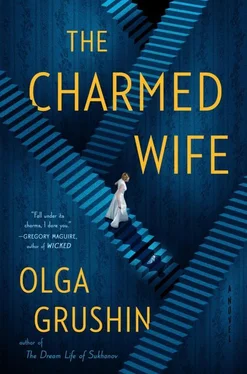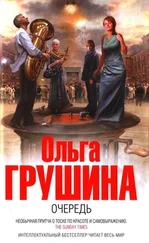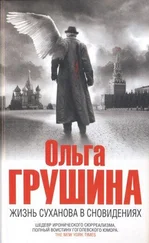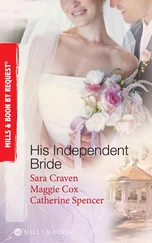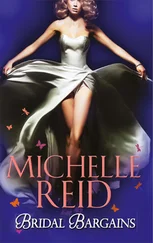But what if this destroys her childhood, their childhood, instead?
Would they even understand I am doing this for them?
Would they still love me?
Anxiety tightens my throat.
“Perhaps not all at once?” I mumble.
“Once you decide to cut off a dog’s tail, you don’t hack it away chunk by chunk,” the witch notes with disapproval. “Moreover, my rheumatism is starting to act up.”
“Whatever happened to letting her make her own choices?” the fairy godmother cries. And immediately they are squabbling again. All at once I am starting to slide toward panic. I close my ears to their bickering, and next I close my eyes—and, with a feeling much like stepping off a roof, toss a bunch of hairs into the cauldron, without counting, without thinking.
Then, my heart pounding, I open my eyes to see what I have done.
Five or six strands are spiraling down into the potion.
Less than half are now left in the palm of my hand.
The Beginning of the Middle
Time had a mysterious habit of flowing faster the fewer events occupied it. The palace shone blue on summer mornings and glinted white on snowy afternoons. She turned twenty-six. Princess Angelina turned three. Prince Roland took frequent trips. She gained some weight, made preserves, presided over mouse polkas on her fireplace rug. Life was peaceful, pleasant, and predictable. On the occasion of her twenty-seventh birthday, Angie gave her a charming present: a tiny ballroom shoe that the child had painstakingly, if rather unevenly, carved out of pink soap. She ran to the west wing, to Prince Roland’s quarters, to show him, only to be told that he had departed on a mission to a nearby kingdom and was not expected back for several days. She stood before the closed door to his study, feeling the unaccustomed sting of disappointment, chewing on her lip. Then she clapped her hands in delight—she knew what she would do. She would give in to the marvelous spontaneity of this day.
She would surprise her husband.
And so, she ordered a carriage, kissed Angie good-bye, and, gently cradling the child’s soap carving in her hands, left for the neighboring kingdom, with just one aged groom minding the horses and only her trusty Brie and Nibbles in attendance. (These mice were cousins in the next generation. Brie the Third was much fussier than her mother, always anxious about everyone’s health, constantly nagging Nibbles to wear warm scarves and beware stealthy drafts. Brie was badly frightened at the prospect of leaving the palace, but Nibbles magnanimously promised to protect her. He thought her infantile and helpless, and saw himself as a fierce, even heroic, mouse; and indeed, his squeak did sound much like the roar of a lion, albeit a tiny one. Needless to say, he was thrilled to venture out into the unknown. He nurtured a secret hope that the princess might get ambushed by some ruffians along the way, and he would enter legend by rescuing her in some spectacular fashion . )
It was a bright winter day. The road snaked from the palace gates and past the town. Beyond it, landscapes became unfamiliar. There were frozen streams to be crossed on rickety bridges, falcons swooping over snowy meadows, copses of silent trees with icy branches glittering clear and sharp in the sun. Now and then, a dazzling unicorn pranced by, or a thin needle of some solitary wizard’s tower rose tall on the horizon. She sat leaning far out the window; she had forgotten to wear a hood, and her ears soon burned with the cold, yet she did not heed Brie’s admonitions to draw the curtains closed but looked and looked, drinking everything in with something much like greed—for it suddenly came to her that she had never traveled anywhere, anywhere at all. By the time the old groom guided the horses through another town, up another hill, to the gates of another palace, she was in a state of childlike excitement.
When she was announced, there appeared to be some confusion as to the prince’s whereabouts, and she, in turn, was surprised to discover that this was the domain of the Duke von Lieber, the jocular nobleman who had paid them a visit some seasons before. The duke himself was away on a weeklong hunt, she was informed by the pomaded butler with a measured gait who showed her in, but the duchess would be overjoyed to see her imminently, or almost imminently, once Her Grace arose from her midday rest. Alone she sat in the reception chamber (Brie and Nibbles had gone off to explore the kitchens) and smiled, imagining with what delight the prince would greet her. The butler brought her a cup of weak tea with too much sugar in it; once the man’s departing steps faded away, there were no sounds save for the ticking of a clock in the corner. The thrill of the ride through the brilliant countryside was still making her blood run faster. And as the minute hand crawled to mark another quarter of a drowsy afternoon hour, she did something out of character: she set down her empty cup, and rose, and walked out of the room, mischievous laughter bubbling up inside her.
No clear goal in mind, she followed a corridor, went through a double door, crossed a hall, passed under an arch, climbed some stairs, turned some corners. She soon discovered this palace to be quite unlike her own—its spaces darker, its air warmer, its furnishings soft and opulent, its lines lithe and sinuous, its colors lush, jewel bright, emerald and crimson and midnight blue—so different from the light-filled, pastel-tinted geometry of the clean, cool, clear expanses to which she herself was accustomed. In a heavily curtained chamber on the second floor, she came upon a low table with curvaceous candelabra twinkling at either end and the remains of an interrupted meal. Her silent laughter died away as she picked up a peach with an imprint of small, perfect teeth in one downy side, trailed her finger along the rim of a goblet, one of two, filled with ruby-red wine. In the next room, dimmer still, velvet pillows lay scattered on the floor, a lyre leaned against the wall, and in a shadowed niche, a cage gleamed dully.
At her approach, the cage exploded with screams.
She clutched at her heart to keep it from leaping away and blinked at the large green bird with eyes of molten amber. The bird was screaming still when a door flew open in the upholstered wall, and Prince Roland strode in. She had just the time to notice that his hair was disheveled and the top two or three buttons of his shirt were undone, when he spoke, and everything else was driven from her mind.
“You! What are you doing here?”
She had heard plenty of shouting in her youth, but no one had ever addressed her with such venom. Stunned, she stared at him. His eyes had gone dark, his face was rigid. He looked like someone else, someone she did not know. She pressed her hands to her mouth, and turned, and fled, pursued by the bird’s strident screaming; and it seemed as if the screams had words in them, some words meant just for her.
She ran—ran through chambers of startled maids, chambers of nasty statues, chambers of stalking cats, until she found herself in a room more frightful than the rest, a badly lit, cavernous place deceptive with the quivering of candles. The air here hung stuffy with some musky perfume, and a monstrous bed stood drowning under storm-tossed waves of scarlet silk. The bed—the bed was horrible, the bed was obscene—and oh, was it possible that someone was hiding under the sheets, breathing, stirring, giggling ?
For one lost minute, she felt that she herself might be asleep, she herself might be dreaming, for nothing was what it was, nothing was what it seemed to be. She flew away again, a soundless cry frozen in her throat, her mind in turmoil, down long carpeted corridors, past numbered doors, and still the nightmare went on, and sudden rips ran through the fabric of things all around her, revealing snatches of dangerous half-truths beneath, and she almost lost all hope of ever finding her way out, when an unexpected light grew before her, and there was the yawning O of the concierge’s mouth, and bellboys hurtling out of her way, and the revolving lobby doors—and at last she was outside.
Читать дальше
